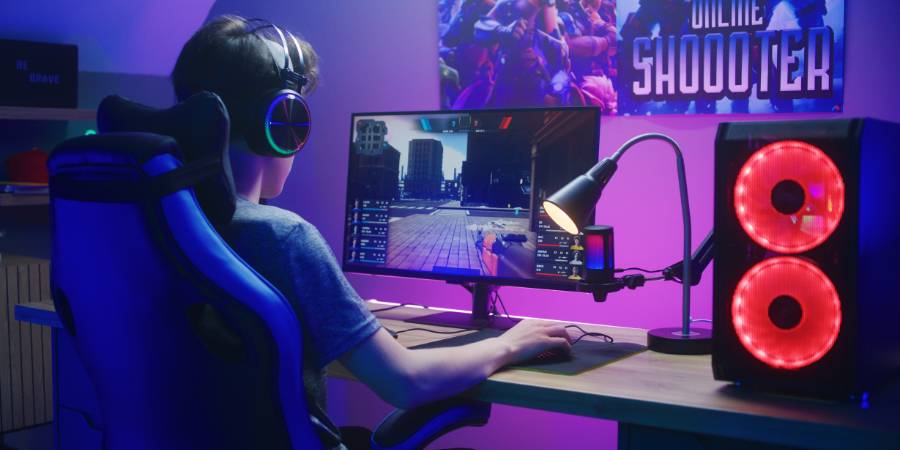Remember the days when beating a video game was just about memorizing patterns, learning when to jump, and mashing buttons in the right order? Those days seem like a distant memory as we step into an era where video games are not just challenging—they’re becoming eerily intelligent. With the rise of advanced artificial intelligence (AI) in gaming, the line between human and machine is blurring, and it’s leaving many gamers asking: Are video games becoming too smart?
When Games Start Outsmarting the Player
We’ve all faced that one boss who seems impossible to beat, the one that anticipates our every move and counters it with brutal efficiency. But what if it wasn’t just a matter of difficulty? What if the game was genuinely learning from your actions, adapting in real-time, and strategizing like a human opponent?
This isn’t some far-off dystopian future—it’s happening now. Modern games are using sophisticated AI algorithms to create adversaries that don’t just react; they anticipate, they strategize, and they learn. Think of it like playing chess against a grandmaster who knows your next move before you even think of it. It’s thrilling but also a bit terrifying.
The Emotional Rollercoaster: From Thrill to Frustration
The idea of facing an unpredictable, highly intelligent opponent in a game can be exhilarating. There’s an adrenaline rush that comes from knowing that every decision counts, that your digital enemy is more than just lines of code—it’s an evolving entity. But this excitement can quickly turn to frustration. When the game becomes so intelligent that it feels like you’re battling a mind-reader, the fun can evaporate, replaced by a sense of helplessness.
For some, this level of challenge is the ultimate test of skill, the digital equivalent of climbing Mount Everest. For others, it’s a barrier, an obstacle that turns what should be an enjoyable experience into a stressful ordeal. The question then arises: Is this what gamers really want?
The Dark Side of Smart AI: When Games Stop Being Fun
There’s a darker side to this technological advancement. As games become smarter, they risk alienating players who simply want to unwind and enjoy a good story or explore a beautiful virtual world. Not everyone is looking for a life-or-death struggle against a hyper-intelligent AI. For many, gaming is a form of relaxation, a way to escape the stresses of the real world—not to add new ones.
Moreover, the unpredictability of advanced AI can lead to inconsistent gameplay experiences. A game that feels perfectly balanced in one session might become impossibly difficult in the next, depending on how the AI adapts. This inconsistency can frustrate players and make games feel less fair, potentially driving people away from titles they might otherwise love.
The Future of Gaming: Striking the Right Balance
So, where do we go from here? Developers are at a crossroads, balancing the desire to create challenging, intelligent opponents with the need to keep games accessible and fun. The future of gaming may lie in customization, allowing players to choose how smart they want their adversaries to be. Imagine a game that adjusts its AI’s intelligence based on your preferences, offering a tailored experience that suits both hardcore competitors and casual gamers alike.
But there’s also a cautionary tale here. As we push the boundaries of what’s possible with AI in gaming, we must remember the core reason people play games: to have fun. If a game becomes so intelligent that it loses its sense of joy, then what’s the point?
Are We Ready for the Challenge?
In the end, the rise of advanced AI in video games is both a blessing and a curse. It offers the potential for deeper, more engaging gameplay experiences, but it also risks creating a divide between those who thrive on intense challenges and those who just want to have fun. As video games continue to evolve, we must ask ourselves: Are we ready to face opponents that can think, learn, and outsmart us?
Or perhaps the real question is: When did video games stop being just games and start becoming something more?
As you fire up your console or PC tonight, take a moment to consider who—or what—you’re really up against. The future of gaming is here, and it’s smarter than ever. But whether that’s a good thing or a bad thing? Well, that’s up to you to decide.












